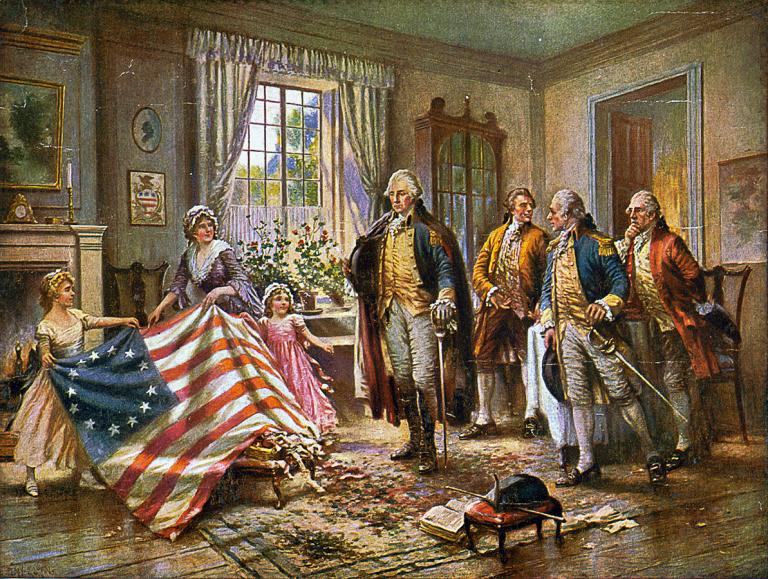
When I was a middle- and high-schooler, I read a lot of James Michener novels — Hawaii, Centennial, Chesapeake, Space, Poland and The Covenant are the ones I remember, looking at the Goodreads list. If you’re unfamiliar with his novels, they generally take the form of a narrative of several families, told over generations, centuries, or millennia, in a particular place; the stories of the individuals from those families intersect with the history and the historical figures of that place. My vague memories include Poland’s describing the partitions by which Russia, Prussia, and Austro-Hungary divided Poland up among them, and a character who winds up in a concentration camp. Of Hawaii, I remember having to give a book report in 5th grade, and adjusting the narrative because it wasn’t entirely PG, what with affairs and illegitimate children and so forth. (Had my Dad read the book himself, or did it just wind up on the family bookshelf? I don’t know. But they made a big deal out of, “Jane is so smart that she’s reading such a long book!” without any apparent interest in the age-appropriateness of the book. There probably wasn’t anything explicit in it, though.) Of Space, I remember that one of the protagonists was from the “wrong side of the tracks” and I pictured him as black and Denzil Washington-y, and was surprised later in the book when NASA management is embarrassed by a photo of a lily-white staff and makes efforts to hire blacks, showing that my image was incorrect. And The Covenant portrays families in South Africa, both Zulu and of Dutch origin. I recall in particular a scene in which, in the recent past, a girl is studied to determine whether she is “white” or “colored” by determining whether her hair holds a curl, and have vaguer memories of character portrayals that attempted to provide the point of view of the whites, and how it is that they thought that setting up the apartheid system was not a self-serving way to oppress others but somehow the “right thing to do.”
Could Michener have written such a book in 2018, rather than its original publication date of 1980? Or would sensitivity readers have stood in the way?
Sensitivity readers, if you’ve missed the recent press on them (e.g., the New York Times, Reason, and, back last winter, Slate) are “experts” employed by publishers, or by authors themselves, to read drafts of novels and provide feedback, corrections, or outright rejection, with respect to how “sensitive” the book is to issues of race, sex, mental illness, poverty, and the like. This is most common for children’s and young adult fiction (why do we call fiction written for teenagers “young adult fiction”, by the way?), but the Times reports that they’re coming into use for adult fiction as well. And the principle of the thing isn’t bad, per se — Michener researched his novels extensively, and presumably if he were writing about, say, the life of poor black families in inner-city Chicago, he would have consulted with experts on that subject as well, and perhaps have some such individual provide feedback on a draft. Hence, a “sensitivity reader.”
But the task sensitivity readers set themselves to seems to be far more extensive than just providing that sort of factual knowledge. These “readers” care as much about tone and emphasis. As Slate says,
There are issues of framing to consider: Is the book about the girl struggling with her weight too much about a girl, well, struggling with her weight? Does a character’s reference to his “shrink” denigrate therapy?
And the readers themselves — according to a database of individuals holding themselves out as experts, anyway — appear to be, well, very intersectional, as the label goes, claiming expertise in the immigrant experience, or the experience of blacks in America, but also simultaneously claiming expertise in LGetc. issues, trans issues, and mental health issues (anxiety, depression), which suggests that their ability to put themselves in the shoes of a straight, cis, neurotypical kid of a minority race or class experience is actually limited.
Now, to a certain extent, near as I can figure, sensitivity readers seem, in general, to be employed by or for authors seeking to write socially-conscious books, didactic books with messages, that attempt to teach majority-culture children about minorities of some sort or another, or to teach understanding of mental illness, or poverty, or the like, or that attempt to provide children in those situations with some comfort. And narrowly speaking, that does me no harm; it’s just another genre that I and my kids don’t read, and, if there’s a market for it, then fine, there can be endless “socially-conscious” books. It’s an irritant that they take up seemingly-disproportionate shelf space at the library, to be sure, though, to be sure, I have no way of knowing whether, among other families, they’re popular enough to warrant the extensive copies that our library purchases. And, likewise, I don’t know if non-didactic books are less likely to get Kirkus stars or other sorts of attention, by their lack of such.
But here’s my concern: the practice of sensitivity readers seems to go beyond pragmatic understandings of minority-ethnic group culture, or the particulars of what it means to have a mental illness, say, and appear to push characters which conform to their own notions of how a character from that particular (ethnic/racial, religious, sex/gender, mental status) minority group would think and feel, and, in particular, seem to result in literature in which minority characters are always flawless, because no flaws would be acceptable to these readers. And who would want to read a story in which the minority characters, whether as protagonist or secondary characters, are cast as perfect, and perfectly heroic?
It reminds me of a complaint that periodically surfaces about instances in which, in children’s novels or Hollywood movies, the female supporting character is actually more competent than the male main character — for instance, “Hermione should have been the main character in the Harry Potter stories, because she’s smarter and saves Harry’s ass repeatedly.” But it just doesn’t work, in fiction, for the main character to always be perfect, and always know what the right thing to do is, and never struggle to figure anything out, does it? In a way, Hermione is more plot device than character.
So this is where I’ll have to ask readers: tell me, does the work product of a sensitivity reader stick to the mandate of stripping out inaccuracies, or does it extend to transforming the books they touch into didactic, but bland, works?
Image: From flickr; https://www.flickr.com/photos/zapthedingbat/3591108120













